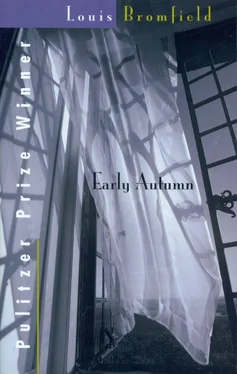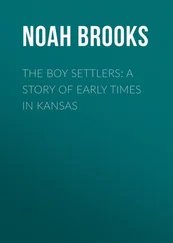There were times when the memory of her own mother became vague and fantastic, as if she had been no more than a figure out of some absurd photograph of the early nineteen hundreds … the figure of a pretty woman, dressed fashionably in clothes that flowed away in both directions, from a wasp waist. It was like a figure out of one of those old photographs which one views with a kind of melancholy amusement. She remembered a vain, rather selfish and pretty woman, fond of flattery, who had been shrewd enough never to marry any one of those gallant dark gentlemen with high-sounding titles who came to call at the eternal changeless hotel sitting room, to take her out to garden parties and fetes and races. And always in the background of the memory there was the figure of a dark little girl, overflowing with spirits and a hunger for friends, who was left behind to amuse herself by walking out with the Swiss governess, to make friends among the children she encountered in the parks or on the beaches and the boulevards of whatever European city her mother was visiting at the moment … —friends whom she saw today and who were vanished tomorrow never to be seen again. Her mother, she saw now, belonged to the America of the nineties. She saw her now less as a real person than a character out of a novel by Mrs. Wharton.
But she had never remarried; she had remained the rich, pretty Mrs. McConnel of Chicago until that tragic day (the clearest of all Olivia’s memories and the most terrible) when she had died of fever abruptly in a remote and squalid Italian village, with only her daughter (a girl of seventeen), a quack and the Russian driver of her motorcar to care for her.
The procession of confused and not-too-cheerful memories came to a climax in a gloomy, red brick house off Washington Square, where she had gone as an orphan to live with a rigid, bejetted, maternal aunt who had believed that the whole world revolved about Lenox, the Hudson River Valley and Washington Square—an aunt who had never spoken to Olivia’s father because she, like Anson and Aunt Cassie, had a prejudice against Irishmen who appeared out of nowhere, engaging, full of life and high spirits.
So at eighteen she had found herself alone in the world save for one bejetted aunt, with no friends save those she had picked up as a child on beaches and promenades, whose names she could no longer even remember. And the only fixed world she knew was the world of the aunt who talked incessantly of the plush, camphor-smelling splendor of a New York which no longer existed.
Olivia saw it all clearly now. She saw why it was that when Anson Pentland came one night to call upon her aunt she had thought him an elegant and fascinating man whose presence at dinner had the power of transforming the solid walnut and mahogany dining room into a brilliant place. He was what girls called “an older man,” and he had flattered her by his politeness and attentions. He had even taken her, chaperoned by the aunt, to see a performance of “The City,” little knowing that the indecorousness to be unfolded there would force them to leave before the play was over. They had gone on a Thursday evening (she could even remember the very day) and she still smiled at the memory of their belief that a girl who had spent all her life in the corridors of European hotels should not know what the play was about.
And then it had all ended by her being asked to Pentlands for a visit … to Pentlands, where she had come upon a world such as she had never known before, a world green and peaceful and secure, where everyone was elaborately kind to her for reasons that she never learned until long afterward. They never even told her the truth about Anson’s mother, the old woman who lived in solitude in the north wing. She was, they said, too ill at the moment to see anyone. Pentlands, in that far-off day, had seemed to the tired, friendless girl like some vast, soft green bed where she could fling herself down and rest forever, a world where she could make friends and send down roots that would hold her secure for all time. To a hotel child Pentlands was a paradise; so when Anson Pentland asked her to marry him, she accepted him because she did not find him actually repulsive.
And now, after all those years, it was spring again … spring as when she had come to Pentlands for the first time, and she was thirty-nine years old and still young; only everything had changed.
Bit by bit, in the years that followed the birth of Sybil and then of Jack, the whole picture of the life at Pentlands and in the brownstone house on Beacon Street had come to assume a pattern, to take form out of the first confused and misty impressions, so that, looking back upon it, she was beginning to understand it all with the chill clarity of disillusion.
She saw herself as a shy young girl to whom they had all been elaborately kind because it was so necessary for Anson to have a wife and produce an heir. … Anson, the last male descendant of such a glorious family. (“The Pentland Family and the Massachusetts Bay Colony.”) She saw herself as they must have seen her … a pretty young girl, disarmed by their kindness, who was not known in their world but was at least charming and a lady and quite rich. (She knew now how much the money must have counted with Aunt Cassie.) And she saw Anson now, across all the expanse of years, not as a Prince Charming come to rescue her from an ogre aunt, but as he had really been … a rather anemic man, past thirty, of an appalling propriety. (There was a bitter humor in the memories of his timid advances toward her, of all the distaste with which he approached the details of marriage … a humor which she had come to understand fully only as she grew older and wiser in the ways of the world.) Looking back, she saw him as a man who had tried again and again to marry young women he had known all his life and who had failed because somehow he had gained a mysterious reputation for being a bore … a young man who, left to himself, would never have approached any woman, and gone to the grave as virginal as he had been born.
She saw now that he had never been even in the slightest in love with her. He had married her only because he got no peace from all the others, both the living and the dead, who in such a strange fashion seemed also to live at Pentlands. It was Aunt Cassie and even poor silly Miss Peavey and powerful old John Pentland and the cousins and all those dead hanging in neat rows in the hall who had married her. Anson had only been an instrument; and even in the most bitter moments she felt strangely sorry for him, because he, too, had had all his life ruined.
And so, slowly during all those long years, the pretty, shy, unknown Olivia McConnel, whose father was a Democratic politician out of Chicago, had turned into this puzzled, sometimes unhappy woman, the outsider, who had come in some mysterious fashion to be the one upon whom all of them leaned for strength.
She was glad now that she had stood forth boldly at last and faced Anson and all those who stood behind him there in the drawing room, both the living and the dead, peering over his shoulder, urging him on. The unpleasant argument, though it had wounded her, had cleared the air a little. It had laid bare for a second the reality which she had been seeking for so long a time. Anson had been right about Sabine: in the clear bright air of the New England morning she knew that it was the sense of Sabine’s nearness which had given her the strength to be unpleasant. Sabine, like herself, had known the great world, and so she was able to see their world here in Durham with a clarity that the others never approached. She was strong, too, in her knowledge that whatever happened, she (Olivia) was the one person whom they could not afford to lose, because they had depended on her for too long.
Читать дальше












